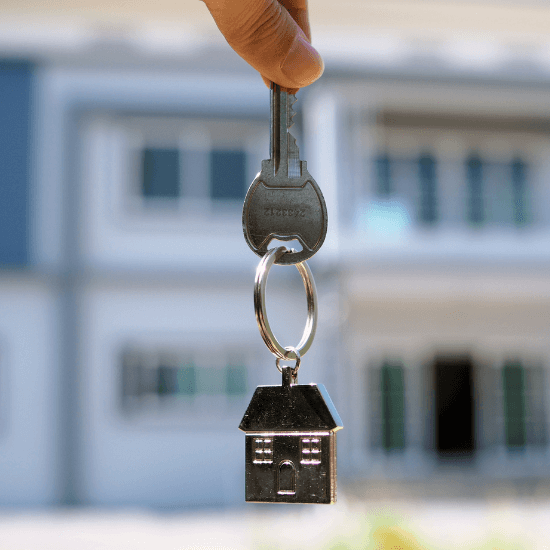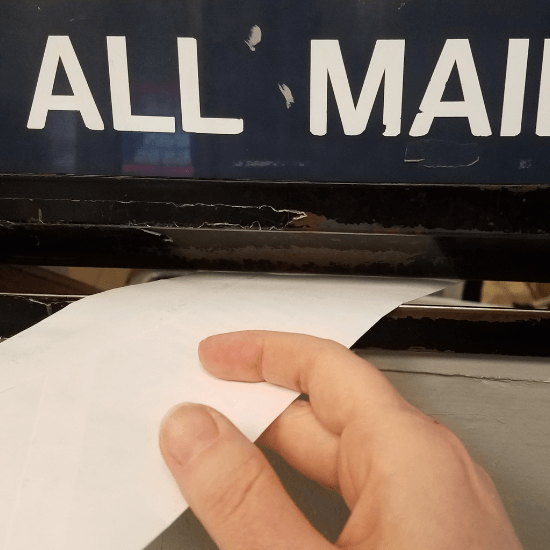After an appraisal of your property, the Appraisal Review Board’s decision about your property value determines the amount of taxes you pay. If the property appraises for a high value, you pay higher taxes. But what if you disagree with the decision?
As a taxpayer, you have the right to protest to the Appraisal Review Board (ARB). After you receive the appraisal, you have a period of time to appeal or protest it. You could file an appeal and request a formal ARB hearing in court. But did you know that you might have another option to achieve a more satisfying decision?
If you meet certain criteria, you could request regular binding arbitration (RBA) instead.
Hover over the image below to read the legal definition of regular binding arbitration
Defining Regular Binding Arbitration
Legally, binding arbitration is defined as an agreement between two parties to have a disagreement reviewed by a neutral third party. Both parties must agree to abide by the third party’s decision – that’s where the “binding” part comes in. Binding arbitration is an alternative to filing an appeal and typically ensures a faster resolution in a less formal setting.
Binding Arbitration and Property Taxes
Many cases of binding arbitration are about property taxes. Instead of a formal hearing with the ARB, property owners in Texas can file for RBA with the county appraisal district.
As a property owner, you have the right to challenge the appraisal to reduce the amount of property taxes you must pay. Filing an appeal will send you to a formal hearing with the ARB where you present evidence to support the true value of your property. RBA allows for the involvement and input of a neutral party.
Like most laws and regulations, the property tax code can seem impenetrable to the average citizen. Below, we overview the qualifications for RBA, the four steps on the arbitration process, how to withdraw if desired, and what to do if your request is rejected.

Which Property Owners Qualify for Regular Binding Arbitration?
Before you can protest property taxes, you must qualify for the process. You may request RBA if:
- The property under protest is real or personal.
- The ARB issued a decision on the appraisal or market value of your property or an unequal appraisal determination.
- The disputed property’s value is below $5 million (excluding residential homesteads).
- All property taxes are current and paid in full.
- There is no lawsuit filed in district court for the property on the same matter.
As long as the circumstances meet these conditions, you as the property owner can request RBA to protest the property tax appraisal.
Process Overview: Binding Arbitration
Step 1 – Qualification: The property owner must meet the qualifications listed above to request RBA.
You must file with the appraisal district (not the Comptroller’s office) within 60 days of the ARB order being delivered.
Step 2 – Filing: The Comptroller’s office provides Form AP-219: Request for Binding Arbitration for you to complete. In addition, you must provide a copy of the ARB order and a deposit by check or money order.
The deposit is made payable to the Comptroller of Public Accounts. even though you deliver it to the appraisal district office.
All paperwork and deposit payments must be completed and turned in within the 60-day limit.
Step 3 – Settlement Period: After you request regular binding arbitration, the Comptroller’s office processes the paperwork. The case then enters a 45-day settlement period in which both parties have the opportunity to settle the case or otherwise withdraw it before it is assigned to an arbitrator (more on this in the next section).
After the 45-day period, the Comptroller’s office makes an appointment with an arbitrator, who then sets the time, date, and location of the hearing. At the hearing, the arbitrator hears the evidence provided by each party (you and the ARB) to determine the value of the property.
Step 4 – Outcome: If the arbitrator determines the value of the property is closer to your proposed value than the value assigned by the ARB, your deposit is refunded (minus a $50 administrative fee). The appraisal district pays the arbitrator’s fee as indicated on an award form.
If the arbitrator decides the property value is closer to that assigned by the ARB than what you think it’s worth, your deposit is used to pay the arbitrator’s fee.
How to Withdraw
If you decide that you want to settle the case before the hearing, you can notify the Comptroller’s office and the appraisal district in writing that you’d like to withdraw. The Comptroller has a specific form — Form 50-830: Notice of Arbitration Withdrawal — for this purpose.
The best time to withdraw your case is during the 45-day settlement period before an arbitrator is assigned to the case. You will get your deposit back, minus the $50 administrative fee.
However, if you wait until after the 45-day settlement period expires, an arbitrator has probably already been assigned. You still need to request the withdrawal in writing; an oral request is not acceptable.
You must notify:
- The Comptroller’s office
- The appraisal district
- The assigned arbitrator
If you withdraw your case after the arbitrator has been assigned, the arbitrator charges up to the full fee amount for the case. If there’s anything left of your deposit after deducting the arbitration fee and $50 Comptroller’s administrative fee, you will be refunded.

Can a Regular Binding Arbitration Request Be Rejected?
There are only two reasons the appraisal district can reject your request for binding arbitration: (1) you did not submit a deposit with your request form, or (2) the payment was insufficient.
However, this is just for the appraisal district. The law requires arbitrators to dismiss all RBA requests that do not meet the legal requirements. The Comptroller’s office has qualificaitons for dismissal, which is not quite the same as a rejection.
An RBA can be dismissed on the following grounds:
- The taxes on the property are delinquent for any prior year or were late
- The protest was not filed under Tax Code Section 41.41(a)(1) or (2)
- The ARB assigned a value over $5 million, and the property does not have a residence homestead exemption
- You filed a request more than 60 days after the ARB order was delivered
- Litigation (a legal court filing) was filed before you submitted the RBA request, and it involves the same issues for the same property in the same tax year
- You have already reached a settlement with the appraisal district
- Your representative is not qualified to represent you
Reliable RBA Representation
Representing yourself at a hearing is intimidating, especially if you are not familiar with the arbitration process or property tax code. If you would like someone to represent you at the hearing, you can represented by one of the following:
- An attorney
- A licensed real estate broker or sales agent
- A certified real estate appraiser
- A property tax consultant
- A certified public accountant
While the hearing is less formal than a court hearing, an experienced professional can increase your chances of getting the appraisal value you’re hoping for. At Republic Property Tax, we have a staff of licensed Property Tax Consultant and Lawyers that will help you secure the lowest possible appraisal for your residential or business property.
FAQ
How much does requesting regular binding arbitration cost?
The cost of arbitration depends on the type of property and the ARB’s determination of the property’s appraised or market value. The rules require you to include a deposit payment when requesting arbitration.
Examples:
- A residence homestead valued at $500,000 or less requires a deposit of $450, $50 of which is a non-refundable administrative fee.
- A property without a residence homestead valued at $1 million or less requires a deposit of $500, $50 of which is a non-refundable administration fee.
- A property without a residence homestead valued at more than $3 million but not more than $5 million requires a deposit of $1,550, $50 of which is a non-refundable administrative fee.
When can I file a RBA request?
You must file the request for binding arbitration (with the deposit) within 60 days of receiving the appraisal from the ARB.
What if I’m protesting property taxes on adjacent pieces of land?
Binding arbitration for contiguous tracts of property (sharing a boundary) is an appeal process that lets you file one RBA request for two or more properties at once. This request requires a single deposit and will only involve one hearing.
The deposit equals the amount for the tract with the highest appraised value or market value of all property under consideration.
Can the Comptroller’s Office intervene in an arbitration?
No, the Comptroller’s office may not intervene. The law prohibits the office from providing advice or direction on any matter relating to a pending arbitration. Staff members are only responsible for assigning arbitrators, maintaining the arbitration registry, processing RBA requests, remitting payment to the arbitrator, or refunding part of the deposit if warranted.
Do I have to physically appear at the arbitration hearing?
You can ask to have the arbitration in person, by teleconference, or by submitting written documentation to the arbitrator. You can only receive arbitration via documentation if you and the appraisal district agree to it. Otherwise, you are limited to in-person or teleconference hearings.
What can I do if I disagree with the outcome of the binding arbitration?
Unfortunately, the entire point of binding arbitration is for the outcome to be, well, binding. The arbitrator’s decision is final, and both parties must abide by it. You agree to this when you request and agree to arbitration.